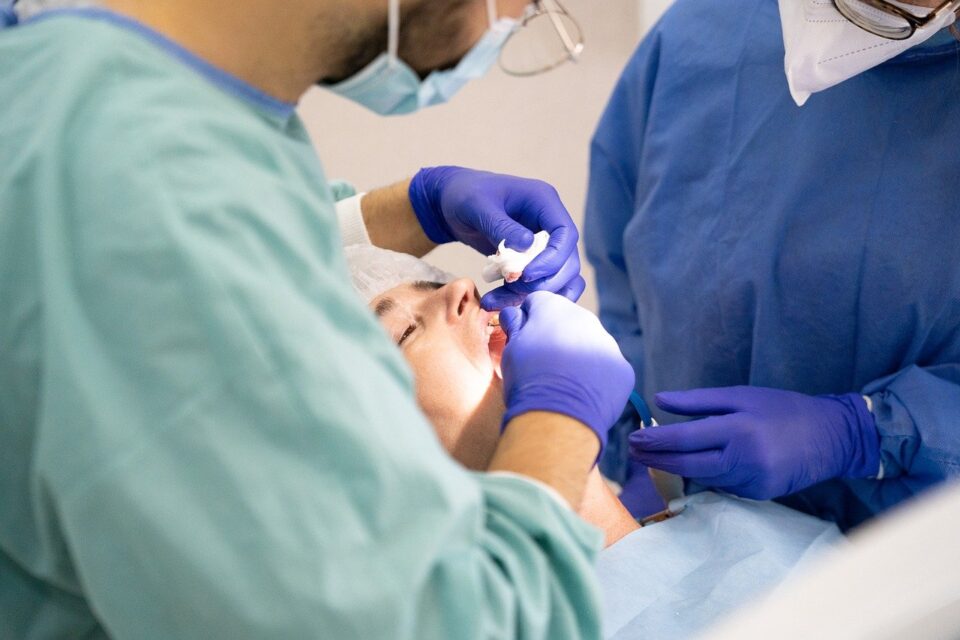For many people, missing teeth is not just an aesthetic issue. It can leave you feeling embarrassed and less confident about your smile. Fortunately, the solution to this is relatively easy – dental implants! This blog post will explore what to do before and after surgery for these life-changing devices.
1. Have an Appointment with your Dentist Before
Surgeries have risks, so it is crucial to have a doctor’s appointment before your surgery. This way, they can check up on you and do any necessary tests or x-rays required for the procedure.
If possible, schedule an appointment with your dentist at least two weeks after having dental implant registration. Your new tooth should fit nicely in place by then! Often, your dentist will share pictures of implant procedures with you so that you understand what to expect. With the pictures, it’s also easier to understand the different kinds of options available for your implant.
2. Prepare your Body for The Procedure
If you will have your surgery under general anesthesia, you’ll have at least 12 hours before your surgery to make sure you’ve taken care of the essential things.
The day before, eat a light meal and brush your teeth thoroughly with fluoride-free toothpaste. You can also use mouthwash that doesn’t contain alcohol or hydrogen peroxide since both are contraindicated for people who have sedation during their dental implant procedure. Be careful to spit out all remaining mouthwash after using it because it may irritate if swallowed by mistake! If possible, do this at night, so you don’t accidentally swallow any while sleeping.
If you are having IV sedation or general anesthesia, skip eating anything completely the morning of your appointment. Only take medications explicitly prescribed for dental procedures as needed–you should take these about two hours before your appointment.
3. Secure Transport to and from the surgery
Most people tend to forget that they need to arrange transport both before and after the surgery. Make sure you have someone to take you to and from the surgery center on time.
If you are traveling for your surgery, make arrangements for a caretaker in advance. You don’t want to be worrying about this during your recovery period.
4. Rinse your mouth with Salt Water
After your surgery, your dentist will give you specific instructions on caring for your mouth. One of the most important things is to rinse your mouth with saltwater. This helps clean the area around the implant and keep it free from infection. Saltwater also helps reduce swelling and bleeding.
5. Avoid Using Straws or Hard Foods that Could Damage the new Implant
After your surgery, you will want to avoid using straws and eating hard foods that could damage the new implant. These activities can cause bacteria to build up around the implant and lead to infection.
6. Rest as Much as Possible
After your surgery, it is important to rest as much as possible so that your body has time to heal. You may feel a little exhausted in the days following your surgery, but this is normal. Avoid overexerting yourself or lifting anything heavy. If possible, ask your employer or teacher if you can take a few days off from work or school.
7. Use Ice Packs and Medications for Pain Relief
You may experience some pain and swelling in the days following your surgery. You can use ice to help reduce swelling, and over-the-counter medications such as ibuprofen can help relieve pain. Reach out to your dentist if the pain persists or becomes unbearable.
8. Avoid Smoking
Smoking can delay healing after dental implant surgery and increase your risk of developing complications. If you are a smoker, try to abstain from smoking for at least two weeks before and after your surgery.
9. Follow Your Dentist’s Instructions
After your surgery, it is essential to follow your dentist’s instructions carefully. This will help ensure a successful recovery. Make sure to schedule any necessary follow-up appointments with your dentist.
Your dentist will also put you under some medication to help you sleep and manage any pain. You should take the medication as directed and follow any other instructions your dentist provides.
Also, if you feel like things aren’t working right after surgery, such as implant failure or infection, go back to your dentist and get it checked out!
Getting a dental implant is a significant decision. Once you have decided to get one, many things need to be considered beforehand and after the surgery has been completed. If you read this article and follow its advice, you will be on your way to having a successful dental implant. Good luck!

